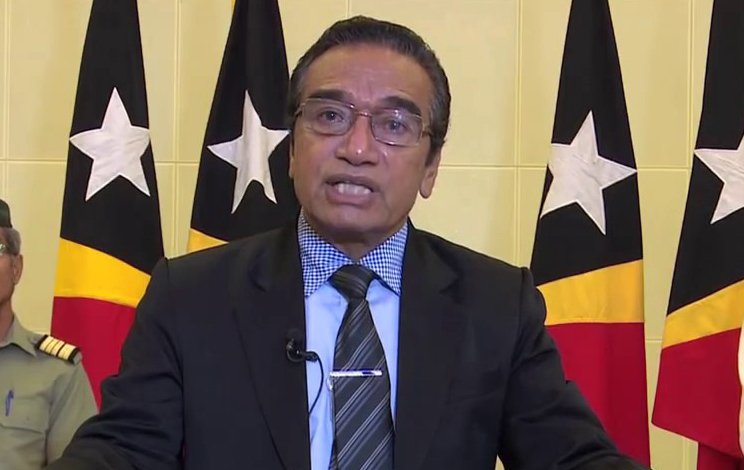
On 29th July 2021, President Francisco Guterres Lú Olo announced the 16th state of emergency, effective for another 30 days from 1st to 30th August, following increasing cases of the COVID-19 delta variant in neighbouring country, Indonesia. The state of emergency will partially suspend freedom of movement, including gatherings and demonstrations. Fully vaccinated individuals were exempted from the travel ban. An isolation zone was imposed in Ermera, and renewed in Dili on the same day, which would remain effective until 12th August 2021 to curb rising cases.
In recent months, civil society highlighted the impact of proposed internet laws on freedom of expression in Timor-Leste and the country’s compliance with UPR recommendations. Despite legal guarantees in the country’s laws and a relatively enabling environment for civil society to operate, civil society raised emerging threats to civic space including plans to criminalise defamation and impose a cybercrime law.
Peaceful Assembly
Civil society highlight restrictions on protest
In a joint submission to the UN Human Rights Council ahead of its Universal Periodic Review, human rights organisations CIVICUS, FORUM-ASIA and Timor-Leste-based NGOs Judicial System Monitoring Program (JSMP) and Timor-Leste Institute for Development Monitoring and Analysis (La'o Hamutuk) examined the country’s record on fundamental freedoms.
The submission noted that the government failed to fully implement the recommendation on the right to freedom of peaceful assembly, which was “to prevent arbitrary detention and to avoid excessive use of force by security forces”. A restriction in the law which prohibits assemblies within less than 100m from State offices and buildings has effectively prohibited the holding of effective protests. Police interpreting the law as requiring organisers to get permission, when the law merely requires notification, has been used as a justification to disrupt protests. The organisations also raised reports of arbitrary arrests of peaceful protesters, the use of excessive force to disperse protests and concerns about the involvement of the military rather than the police in preventing protests.
Expression
Concerns around press freedoms and plans on restrictive laws
The four organisations also noted that the government had only partially implemented six recommendations it received related to freedom of expression and access to information. The submission raised the government’s failure to revise the existing Media Law in line with international standards, the criminalisation of ‘defamatory false information’ (slanderous denunciation) which was previously used against two journalists, plans to revive criminal defamation and to impose a cybercrime law which can be used to stifle expression and the right to privacy.
NGO calls for the postponement of Cybercrime Law discussion
The NGO La'o Hamutuk, or the Timor-Leste Institute for Development Monitoring and Analysis, sent a letter to the National Parliament calling for the postponement of the discussion on the proposed Cybercrime law, to allow for meaningful consultation on the bill. In its 4th June 2021 letter, La'o Hamutuk raised concerns on the government’s efforts to “limit and criminalise the right to access information and expression” guaranteed to every citizen.
The letter also raised concerns about moves to criminalise defamation in 2020 while the country was under a State of Emergency. La’o Hamutuk highlighted the dissent that followed these plans to criminalise defamation and decried efforts to impose the Cybercrime law, arguing that it would “kill people's freedom of expression and media in the virtual world”.
As previously documented, the draft Cybercrime bill which aims to prevent the dissemination of ‘falsehood, slander and defamation’ was sent to the Ministers on January 2021. A journalist has shared that the proposed law was under review by the parliament, as of 1st June 2021.
Reports highlights impact of Timor-Leste’s proposed internet laws on freedom of expression
On 14th July 2021, the Asia Centre launched a report assessing the impact of existing legislation, as well as three proposed ‘internet’ laws: the draft Criminal Defamation bill, the draft Cybercrime bill (Cybernetic bill) and the draft Data Privacy and Protection bill on freedom of expression.
The report highlighted vague provisions in the country’s existing laws, including the Media Law and the provisions in the Penal Code which do not comply with human rights standards and may be arbitrarily used against individuals.
It delved into three internet laws and repercussions for free speech and access to information. The draft Criminal Defamation bill, the report argued, aims to silence criticism particularly against public officials. Vague provisions in the draft Cybercrime bill would potentially lead to abuse of power in curbing online speech and access to information. While the draft Cybercrime bill allows for judicial authorisation prior to surveillance and investigation, the report criticised the lack of thresholds to determine the level of severity of a crime required to warrant an investigation. The report also highlighted concerns over the implementation of data collection and storage under the Privacy and Data Collection Bill.
The report recommended amendments to existing legislation, the withdrawal of the draft Criminal Defamation Law, revision of the Draft Cybercrime bill to specify a threshold for investigation and ensuring the independence of the committee handling the draft Data Privacy and Protection bill.